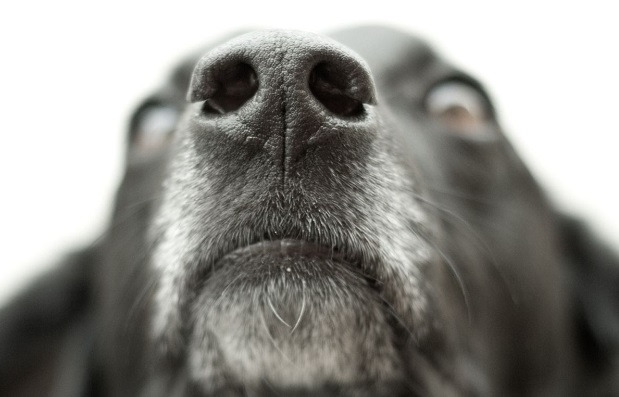PARIS — Dogs can be trained to detect more than 90 percent of COVID-19 infections even when patients are asymptomatic, according to research published on Monday, which authors hope could help replace the need to quarantine new arrivals.
Using their remarkable sense of smell — which can pick up the equivalent of half a teaspoon of sugar in an Olympic-sized swimming pool — dogs have already shown that they can sniff out maladies such as cancer, malaria, and epilepsy.
Several previous studies have shown proof-of-concept that dogs can detect SARS-CoV-2.
Researchers from the London School of Tropical Medicine wanted to see if dogs could detect a distinctive odor given off from chemical compounds associated with someone who is COVID 19-positive but doesn’t show symptoms.
They gathered samples of clothing and face masks from people who had tested positive for mild or symptomatic SARS-CoV-2.
Samples of the socks of 200 COVID-19 cases were collected and arranged in lab tests for six dogs that had been trained to indicate either a presence or absence of the chemical compound.
The dogs needed to be trained not to identify “false positives” in a bid to hack their reward system and obtain treats even if there were no COVID-19 samples in a given test.
“This means that the dog fully understands and gets a reward for a correct negative as well as a correct positive,” said Claire Guest, from the school’s Faculty of Infectious and Tropical Diseases.
Overall, the dogs were successfully able to identify 82 to 94 percent of SARS-CoV-2 samples.
The researchers then modeled how effectively these success rates, combined with traditional PCR (polymerase chain reaction) tests, could help detect mild or asymptomatic COVID-19 cases.
They found that using dogs to screen arrivals at terminuses such as airports could detect 91 percent of cases, resulting in a 2.24 times lower rate of transmission than with PCR tests alone.
Quicker than other tests
Authors of the research, which has yet to be peer-reviewed, said they hoped it could eventually replace the need for travelers to quarantine—which necessarily disrupts every arrival even though the vast majority are not COVID 19-positive.
“The key thing is that dogs are significantly quicker than other tests,” said coauthor James Logan.
“What we’re suggesting is that dogs would give the first initial screening, and then [arrivals] that were indicated as positive would then receive a complimentary PCR test.” —AFP
